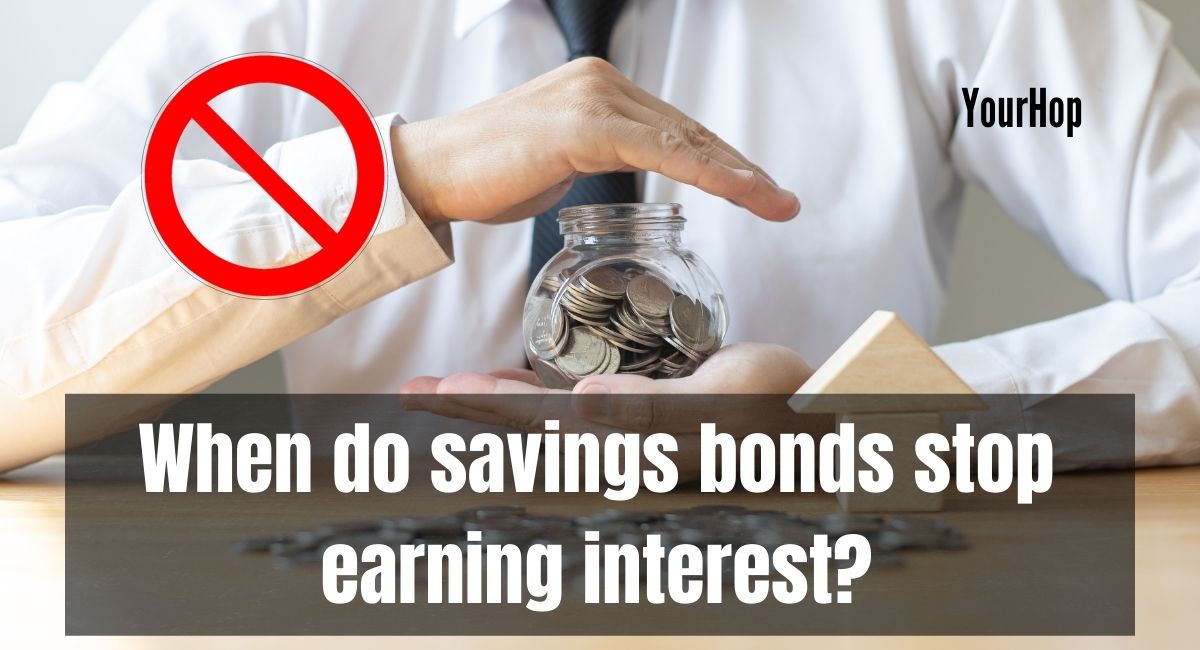Savings Bonds are considered a safe type of investment that continues to give you interest for a long time. Some bonds provide a fixed rate of interest, and some provide a variable rate of interest according to market conditions. Surely, bonds are safe investment options, but do you know they will stop earning Interest one day? Yes, it will happen on their maturity. So, exactly when do savings bonds stop earning interest?
30 Years! After the period of 30 years or on their maturity, savings bonds will stop earning interest. All bonds have a maturity period, and if you keep the bonds even after the maturity period, then they will not give you any interest. So it will be wise to withdraw the amount at the right time.
Let’s get to know more about savings bonds and interest on various types of savings bonds.
When do US savings bonds stop earning interest?
After 30 Years. The majority of savings bonds cease earning interest after approximately 30 years or after reaching maturity. You can redeem a savings bond within one year of purchasing it, but you should wait at least five years to avoid losing the last three months of interest when you cash it in.
Read Also: How much money do you have to make file taxes?
When do EE savings bonds stop earning interest?
30 Years. EE bonds earn interest until they reach a maturity date of 30 years or until they are redeemed, whichever occurs first. If you do not redeem them after 30 years, they will not accrue any interest.
They are redeemable after one year. However, if you want to redeem them before five years, you will forfeit the last three months’ interest. (For instance, if you redeem an EE bond after 30 months, you will receive the initial 27 months of interest.)
EE bonds earn the same interest mentioned at the point of purchase. So you know exactly how much interest you’ll receive for the first two decades of owning the bond when you purchase it.
When should I cash in EE savings bonds?
You should ideally cash in your EE savings bond after five years because, after five years, you will not lose the three months of interest. However, if you cash in these bonds before five years, then you will lose interest for three months.
To avoid losing the final three months of interest when you redeem a savings bond, you should wait at least five years after purchasing it.
Read Also: How long will my retirement savings last?
When do series I savings bonds stop earning interest?
After 30 years of maturity. If you don’t cash them first, I bonds pay interest for 30 years. After 30 years, they will stop accruing any interest. After a year, you’ll be able to cash them in. However, you’ll lose the interest accrued over the previous three months if you cash them out before the five-year mark.
Interest on Series I savings bonds is based on a combination of a fixed interest rate and the rate of inflation. The combined interest rate for bonds issued between November 2021 and April 2022 is 7.12 percent.
How much is a 100 savings bond worth after 30 years?
It depends on the year of issue of the $100 bond. In today’s market, a $100 bond issued in January 1991 earns 4% and is worth about $175. Contrarily, you can get $230.64 for a February 1984 $100 US Treasury bond of the same denomination.
It is possible to buy a bond for $100, and at the time of redemption, it would be worth $200. The Series EE bond earns interest for 30 years and has no redemption penalty after five years.
How to redeem savings bonds?
Savings bonds can be redeemed in a variety of ways. For example, savings bonds, such as the Series EE or I, can be redeemed online through your TreasuryDirect account, and the money is deposited into your checking or savings account within a few business days if they were purchased electronically.
If you own a paper savings bond, it is frequently possible to redeem it at a local bank or credit union.
Certain older series of savings bonds cannot be repaid directly at a bank or credit union; in these cases, you must complete a special form FS Form 1522, and mail the bond to the Treasury Department’s Treasury Retail Security Services team along with a certified signing and direct deposit instructions.
Do savings bonds earn interest monthly?
The interest on an I bond is paid out every month on the first of the month following the date of issuance. After 30 years, the interest on the bond is repaid, or the bond is cashed, whichever occurs first.
However, interest is compounded on a semi-annual basis. Every six months from the date of issue, the bond’s principal value is increased by the interest it has earned in the six months prior. The new principal is then used to earn interest.
Bottom Line
So this was all about savings bond interest and when do savings bonds stop earning interest. If you own a savings bond, then remember its maturity date as it will stop earning interest after 30 years.
Moreover, if you have bought a savings bond recently, then try to keep it with you for five years, as cashing it before this period will result in a loss of three months of interest.
We hope this article was helpful & informative. Please leave your valuable thoughts & suggestions in the comments below!
Thank you for reading!






